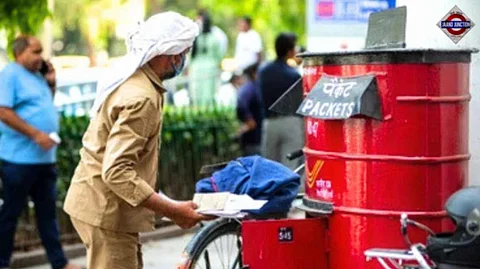

For generations, Registered Post has delivered court summons, legal notices, government orders, and personal letters. For millions, it has been more than just mail—it’s a symbol of security, legal recognition, and trust. Now, that is about to change.
India Post has announced that Registered Post won’t disappear but will merge with Speed Post starting September 1, 2025. The Department of Posts says this is a step towards modernizing operations and making the customer experience smoother.
Since the announcement, there’s been a heated debate online. Supporters call it a needed upgrade, while critics see it as the end of a service that’s been part of India’s postal heritage for over a century.
What’s happening?
On August 7, India Post clarified on Twitter:
“Fact Check: Registered Post is NOT being discontinued. We’ve upgraded the service by merging it with Speed Post. We’re modernizing, not erasing.”
They assured that all key features of Registered Post—delivery to the specific person, delivery receipts, legal validity, acknowledgments, and real-time tracking—will stay the same. The change is in faster delivery and better integration. From September 1, items will move through Speed Post’s quicker network but keep their legal protections.
Who’s involved?
- India Post, with over 150,000 branches nationwide
- Press Information Bureau, which released official statements
- Postal customers like lawyers, government offices, and everyday citizens relying on Registered Post
- Critics and activists, including voices like @savitha_rao
- Private courier companies watching the shift closely
When and where?
The change takes effect September 1, 2025, across the entire country—from big city post offices to rural branches.
Why now?
India Post says the decision is based on years of customer feedback asking for faster delivery, fewer delays, better tracking, and services comparable to private couriers. By merging Registered Post with Speed Post, they aim to reduce bottlenecks, use infrastructure more efficiently, and improve reliability.
A senior official in Bengaluru said, “Now customers can choose Speed Post that’s address-specific or addressee-specific. Legal deliveries will stay secure but be faster.”
How will the new service work?
Starting September 1, customers will still get:
- Delivery only to the addressee or authorized person
- Official proof of posting
- Legal validity for court and government use
- Acknowledgment cards
- Real-time tracking
Plus new Speed Post benefits:
- Faster delivery
- Enhanced online tracking with more scan points
- OTP-secured deliveries
- Cash on Delivery option
- Discounts for bulk users and corporate clients
- National Account facility for high-volume customers
The Twitter backlash
Despite India Post’s assurances, many on social media are upset. Activist @savitha_rao accused the department of ending an affordable service to push people toward more expensive options:
“It’s like saying trains continue, but only first class is available.”
Some questioned why Registered Post should be subsidized when mostly businesses use it, but Rao argued Registered Post rates are already similar to private couriers, while Speed Post is pricier.
The cost
- Registered Post (20g): ₹22 locally
- Speed Post (50g): ₹15 locally, ₹35 nationwide
Critics say nationwide pricing may hit small users who relied on Registered Post for affordable legal deliveries.
The bigger picture
Around the world, postal systems are merging services due to fewer letters, more e-commerce, and private competition. In India, Registered Post carries legal and cultural importance, so this change feels personal to many.
For India Post, the key question is whether people see this as “same service, faster” or “affordable service, gone.” For now, opinions depend on which side of the Twitter debate you follow.
